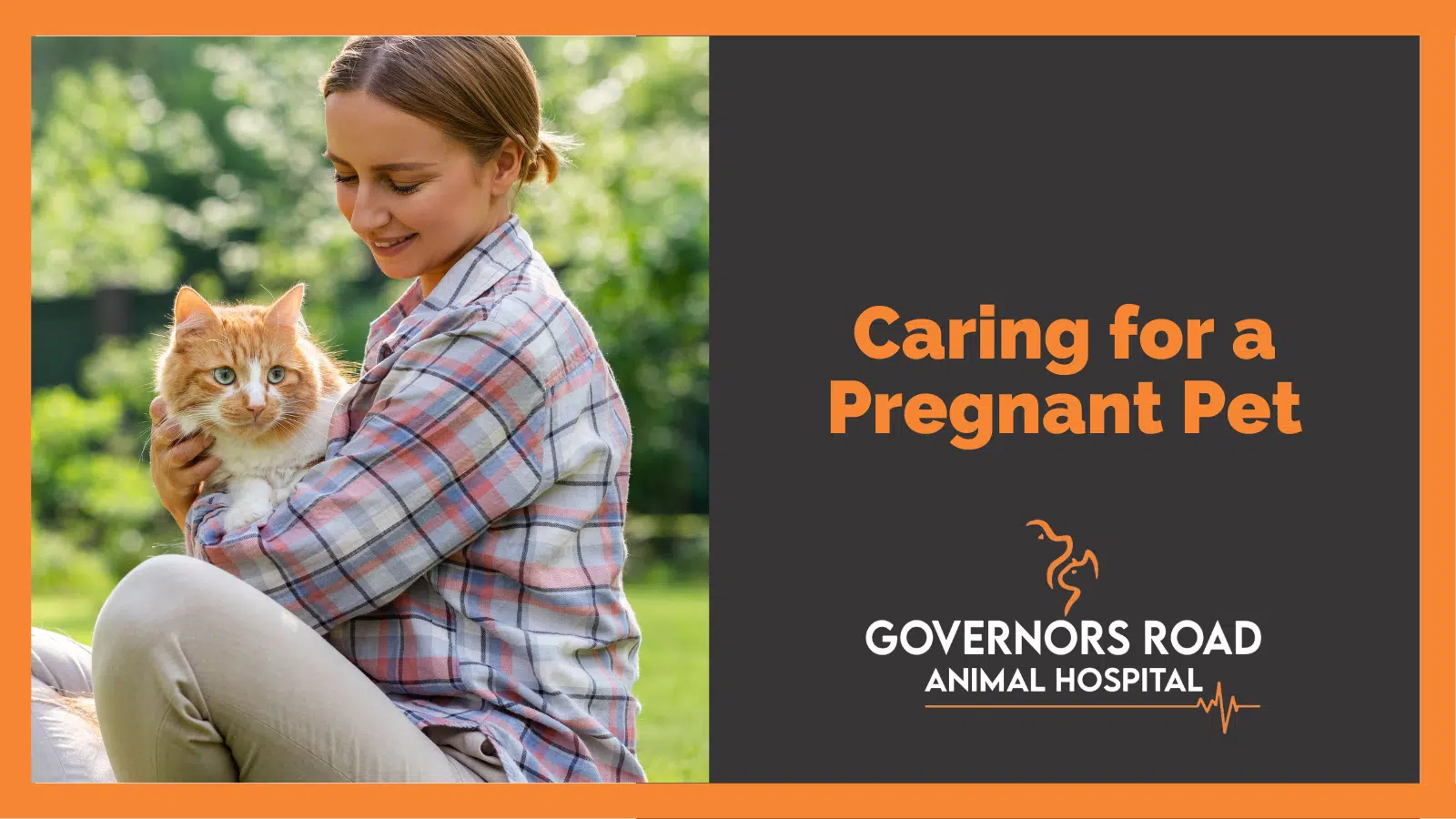
30 Nov Caring for a Pregnant Pet
The process of bringing a new life into the world can be taxing and rewarding, and this extends to dogs and cats, who require special attention during this time to stay healthy and safe.
Once your dog or cat expects pups, you’ll want to ensure she stays in optimal health. Some tips on caring for a pregnant pet will help her go through a safe and comfortable pregnancy experience.
Signs Your Pet is Pregnant
The first sign that your dog or cat is expecting is an increase in appetite. Pregnant pets will often eat more than usual, so it is vital to maintain a healthy diet.
Changes in water intake often accompany changes in appetite. Also, some dogs experience cravings for specific foods during this time.
Visible changes in the appearance of a dog, such as increased tummy size and weight, are more signs she is pregnant. The nipples will also swell and may appear reddened or dark.
You can confirm your pet’s pregnancy by having essential pregnancy tests and scans done at a veterinary clinic or animal hospital. Using X-Ray or ultrasound scans, the vet will determine whether your pet is pregnant and how long it has been since she conceived.
Tips to Care for Pregnant Pets
Once it is confirmed your pet is pregnant, it is essential to be mindful of how she is feeling and take extra safety precautions to keep her healthy during this time.
Follow the tips below to ensure your pregnant pet gets the best care.
More Frequent Meals
Pregnant dogs and cats should be fed more frequently than usual. Pregnant pets typically eat 35 to 55% more food than usual. So, include vital nutrients in your pet’s diet, particularly high-quality foods formulated for pets.
It is also essential to feed pregnant dogs at regular intervals (3-4 times a day) in small portions instead of feeding them at once. This can help prevent vomiting and diarrhea, besides providing them with essential nutrients and energy throughout the day.
Gentle Walks and Exercise
Pregnant dogs and cats can continue moderate activity throughout the entire pregnancy. But it is not a good idea to engage them in strenuous exercises as it can expose them and the puppies inside to potential injuries.
Instead, consider taking your pregnant dog for short walks three or four times a day. In doing so, make sure the walking path or terrain is not strenuous.
Most veterinarians recommend limiting exercise and walks during the last month of a dog’s pregnancy. Your veterinarian can advise you on your pet’s best course of action, but the walk should be moderate, and water and rest breaks should be included.
Comfortable Resting Space
During the last weeks of pregnancy, dogs may start looking for a quiet, comfortable place to spend their time, and as such, making your pet’s resting spot as comfortable as possible is essential.
Some dogs benefit from extra bedding, such as a heated blanket, during this time. It is also a good idea to ensure the bedding is clean and comfortable.
During the final weeks of pregnancy, some dogs will also start to prepare their whelping area. This is the place where they will give birth and nurse the pups. Ensure the area is hygienic and your pet has a comfortable place to give birth.
Visits to the Vet
Schedule routine visits to the veterinarian during your pet’s pregnancy to detect potential problems and ensure the pregnancy is progressing. Plus, veterinarians at a veterinary clinic in Dundas will monitor the fetus’s growth, examine your pet’s health, and may administer necessary medications.



Sorry, the comment form is closed at this time.